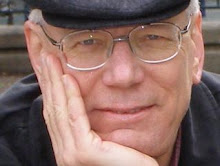
One of the collateral goals in my Volunteers in Mission trip to Zimbabwe was to further the relationship between the pastors, people, and congregations of the Hutchinson District of the Kansas West Conference and the pastors, people, and congregations of the
Mutare District of the Zimbabwe East Conference. That happened in both expected and unexpected ways--all of them blessings.
I had taken with me the "Harvest Thanksgiving" offering and signed "Future with Hope" card from the people of First United Methodist Church in Hutchinson for presentation to the people of the
Streamview United Methodist Church. I took items from the Stafford and Alden United Methodist congregations for their partner congregations--the
Zimunya North Circuit and
Muradzikwa respectively. I carried with me a suitcase filled with "prayer bears" from the people of the
Hillsboro United Methodist Church for the children of the Fern Valley United Methodist Church. I brought a copy of the 2008
Book of Discipline and the 2008
Book of Resolutions for the
Mutare District Office.
In addition, I took with me a set of envelopes for the pastors, retirees, clergy widows, and conference appointees of the Mutare District. Each envelope contained a $20.00 bill, a $10.00 bill, and a "Three Simple Rules" bookmark.
The financial gift was in keeping with a goal that we have set for ourselves as pastors in the Hutchinson District to send a "love offering" four times a year of at least $20.00 for each of our counterparts. We had done so twice already, and I carried the third such gift with me.
The "Three Simple Rules" bookmarks just seemed like a good idea. They are a modern adaptation of John Wesley's admonitions to "Do No Harm. Do Good. Stay in Love with God." It seemed like the kind of admonition that the clergy in our two districts always need to keep in mind.
Earlier in the week, I had given the envelopes with the money (and bookmarks) to the Rev. Tazvi Nyarota, the superintendent of the Mutare District. She said that she wanted me to present these envelopes to the pastors in person. As the week unfolded, nothing ever worked out, and I assumed that other arrangements had been made. As it turned out, there was another unexpected blessing in store for me.
This blessing came on Friday afternoon, July 31. That morning, our Volunteers in Mission team finished work at the
Zimunya Skills Training Centre. We had then shared another excellent noon meal at St. Peters United Methodist Church. The next thing on my schedule was attendance at the Zimbabwe International United Methodist Summit, scheduled to begin on the campus of Africa University at 2:00 pm.
I knew that I was going to be late for the start of the meeting, so I was hurrying across the Africa University campus toward the chapel. To my surprise,
Tazvi Nyarota stepped out from among a group of pastors and spoke to to me. "The people who have been waiting for you are here," she said. At first, I thought she meant the people at the summit where I was headed. But she meant the pastors from the
Mutare District who had been waiting for my arrival.
They had been at Africa University that week for Pastors School. Unlike the Kansas Area Seminar on Professional Ministry, this week-long event is well attended! Pastors School itself had ended on Friday at noon--or perhaps with the noonday meal. In any case, the District Superintendent had kept her pastors waiting for me to get there. She knew my schedule, and she wanted me to present the envelopes myself.
And so there came another unexpected blessing. Rev. Nyarota had me call the name of each pastor aloud and then present them with the envelope containing the money and the "Three Simple Rules" bookmark. After the presentation was completed, one of the pastors spoke words of appreciation on behalf of his colleagues for me to share with the pastors in the Hutchinson District. And then, of course, we took a picture!
Like so many other experiences on this trip, this unexpected blessing was simultaneously uplifting and humbling. The pastors of the Mutare District graced me with their patience in waiting for me to show up that afternoon. They blessed me with good humor as I mispronounced their names in sometimes spectacular ways. They blessed me with their good will as they expressed their appreciation for what was a modest gift by American standards by a significant one by Zimbabwean standards. They blessed me with the depth and breadth of their faith that sustains them in remarkably difficult circumstances. They blessed me with the joy that shows through in so many ways.
It was another of the many blessing--expected and unexpected--that I encountered during my trip.





 r United Methodist Women's uniform--had a special presentation to make to Ed Dodge and Peggy Miller. They are two of the children of the late Bishop Ralph Dodge, who was so important to the life of the church in Zimbabwe. , two of the children of
r United Methodist Women's uniform--had a special presentation to make to Ed Dodge and Peggy Miller. They are two of the children of the late Bishop Ralph Dodge, who was so important to the life of the church in Zimbabwe. , two of the children of 






